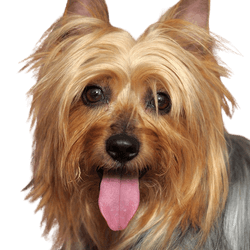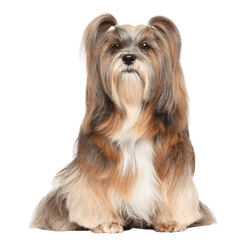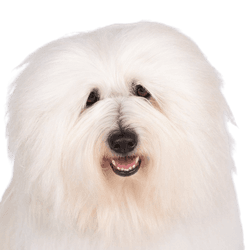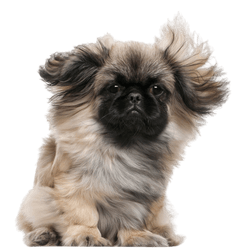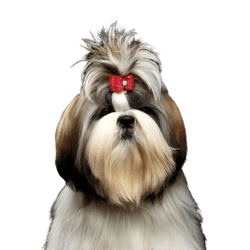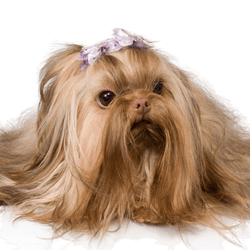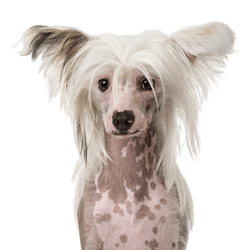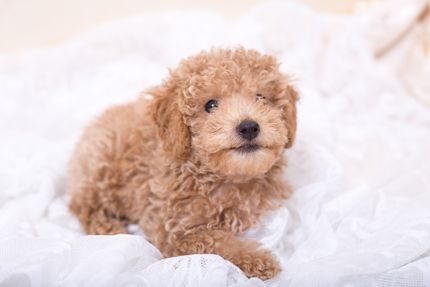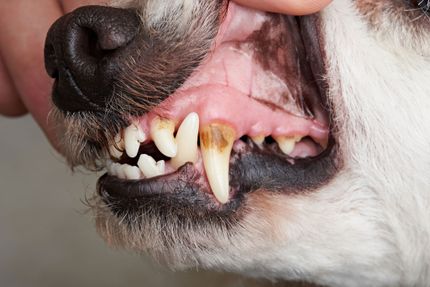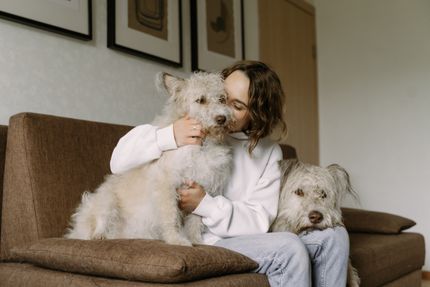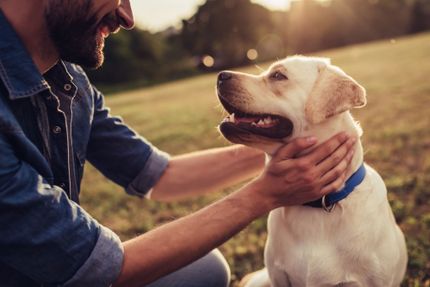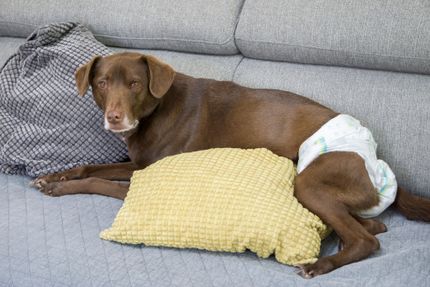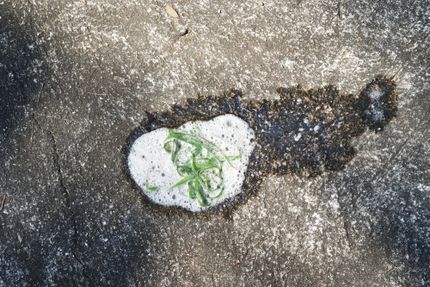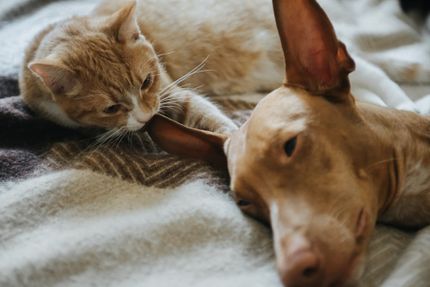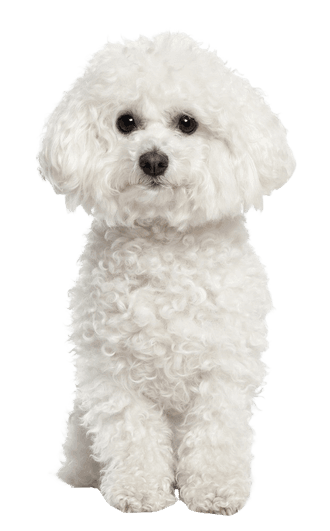
Bichon Frisé Breed description: Character & Co
Bichon Frisé
Facts & Origin
It is assumed that the origin of the breed is the Canary Islands. The dogs were probably brought to Europe by sailors from Tenerife as early as the 14th century. In its present form it is bred in France and especially in Belgium. The Bichon Frisé was considered a status symbol of the higher society and was especially popular with the ladies, who appreciated the breed as a lap and companion dog. But it was also often used as a watchdog. The dog breed is recognised by the FCI and is registered under No. 215, Group 9 (companion dogs), Section 1.1 (Bichons) Dogs without working test.
Breed description and character
The Bichon Frisé is a self-confident, spirited but also patient and very teachable dog. Their most striking characteristics are their courage and alertness. In case of imminent danger, they will indicate it immediately, but cannot be called a real protection dog. On the contrary, its nature is rather calm and well-behaved. These dogs are friendly towards visitors and other dogs.
Interesting facts about the Bichon Frisé
Some people suffer from pet allergies. Dog hair allergies are very common. However, the allergy is usually not triggered by the hair itself, but by allergens found in the dog's saliva. When the dog licks its coat, the saliva with the allergens in it sticks to the hair. There is no dog breed that is 100% allergy-free. However, the Bichon Frisé is one of the breeds of dogs that are also suitable for people that are allergic to animal hair. This is on the one hand due to the fact that the breed doesn't shed a lot of hair and on the other hand because of their soft, curly coat, which traps the allergenic skin scales and dust, making the dog perfect for people who normally suffer from pet allergies. If you want to buy a Bichon Frisé puppy you should always contact a certified Bichon Frisé breeder. At VDH you will find contact details of member clubs and reputable breeders.
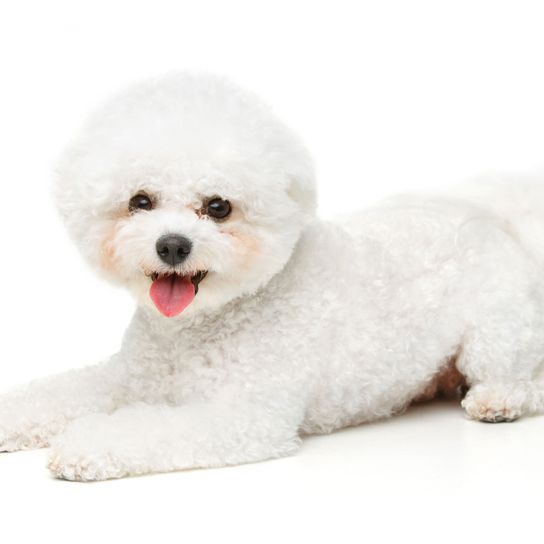
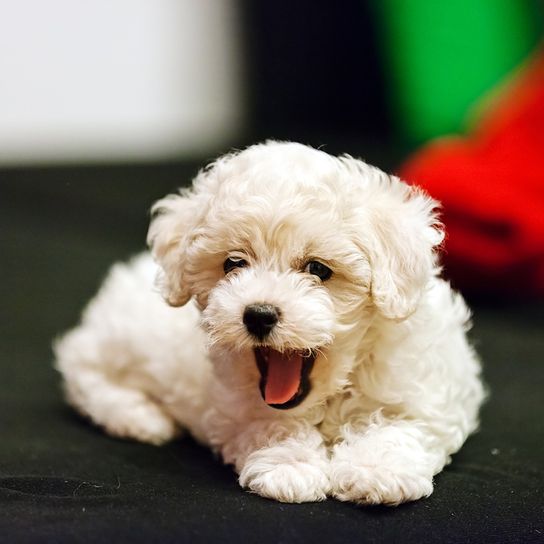
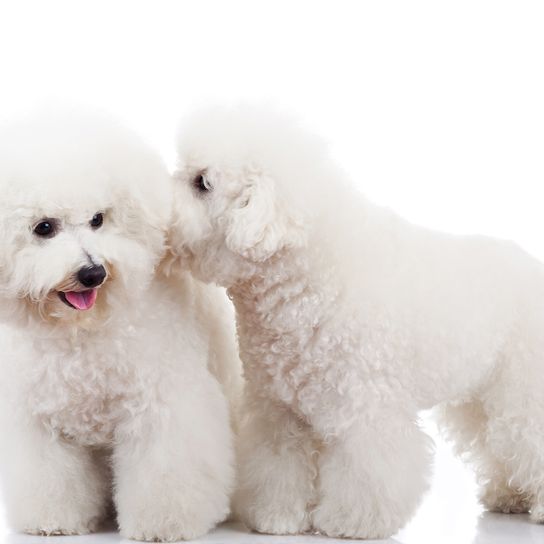
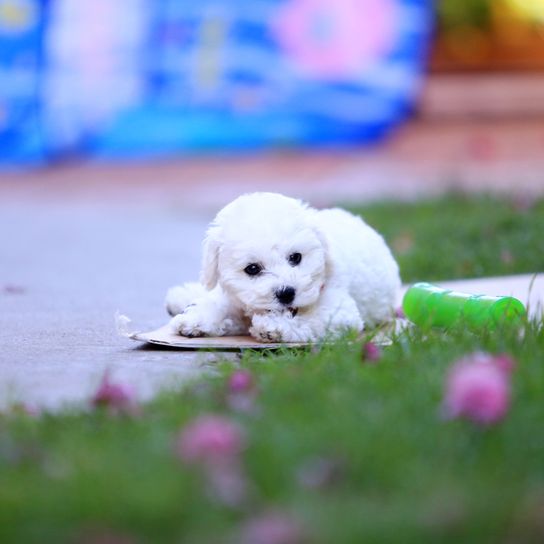
| Alternate Name | Bichon Frise, Bichon |
| Origin | France |
| Life expectancy | 12 - 15 years |
| Care requirements | low-maintenance |
| Activity level | low |
| FCI group | Bichons and related breeds |
| AKC group | non-sporting group |
| KC group | Toy Group |
Bichon Frisé mixes
Attitude, character and temperament of the breed
Attitude and training
The Bichon Frisé is particularly suited as a city dog. It is obedient, easy to lead and can be taken everywhere without any problems, no matter if hotel, restaurant or when traveling. It makes for an excellent family dog that loves to play with children.
The cheerful, bright dogs do not need a lot of exercise. A daily walk of at least 30 minutes is a necessity however. Training them is presumably easy. Special experience is not necessary, but consistency is. When early socialisation is provided, Bichon Frisés get along well with other dogs and pets. It barks when it suspects danger, but is not usually a yappy dog. These intelligent dogs are very well suited for first-time owners due to their easy-going nature.
Character
Usage

Health and breeding information
Nutrition-wise they are not complicated to care for, however. This active dog is not particularly prone to suffering from overweight. They can tolerate both raw and dry food. However, as the dogs' stomachs are relatively small, their food portions should be divided into several small meals per day. You should also pay attention to a disease that occurs frequently in small dog breeds, the so-called gastric torsion, which Bichon Frisés are also at risk for. This can be prevented by making sure that the dog does not jump or run excessively after eating. If there is a suspicion of a stomach torsion, an immediate visit to the vet may be life-saving for the dog. Symptoms of the disease are severe restlessness, choking and a bloated, hard belly.
Typical diseases of the Bichon Frisé
The Bichon Frisé is normally a healthy, robust and durable dog. They can live up to 15 years in good health. But in old age many Bichon Frisés suffer from glaucoma. Certain diseases are also typical of the breed:
- Patella dislocation: This knee joint malposition has the consequence that the dog can no longer move the affected leg without pain. In the worst case, this leads to lameness.
- Cushing's syndrome: Excessive cortisol levels in the blood cause the dogs to gain weight and lose their fur.
- Hip dysplasia: This maldevelopment of the hip joint causes severe pain with every movement. Without treatment, the dog will eventually not want to walk any more.
- Hypothyroidism (hypothyroidism): The lack of thyroid hormone supply is life-threatening in the long term. The dog becomes tired and lethargic. Their fur can fall out partially, they become sensitive to cold. The ears can become inflamed. Diarrhoea or constipation can occur. In the worst case, muscle cramps, paralysis, gastrointestinal complaints, anaemia and blood clotting disorders can occur.
Buying a Bichon Frisé
Alternatively, you can also buy a Bichon Frisé that is waiting in an animal shelter or at an animal welfare organisation for someone to feel for them and take it with them. Such dogs in need are of course much cheaper than dogs from the breeder. They usually only cost a nominal fee of 100 to 300 Euros. A Bichon Frisé from the breeder costs 1.500 Euros or more.


In appearance, the Bichon Frisé shows a great similarity to a cotton ball. The dogs have a thin, silky and very curly coat. Their greatest distinguishing feature, the coat colour is uni-coloured white (in individual cases also champagne-coloured). The body is light but muscular and weighs a maximum of 6 kg at a height of about 30 cm measured at the withers. The dogs have a sharp scissor bite, which is extremely effective when biting up meaty food into smaller pieces.
Coat of the Frisé
The coat care of the Bichon Frisé is time consuming. Daily brushing is important though, since the dog may develop skin problems (e.g. inflammations) otherwise. Their coat gets tangled up easily.
| Fur length | short |
| Fur | curly |
| Ear shape | Floppy Ear |
| Tail | fanned out |
| Anatomy | dainty |
| Size ♀ | 23 - 28 cm |
| Weight ♀ | 3 - 5 kg |
| Size ♂ | 23 - 30 cm |
| Weight ♂ | 3 - 5 kg |
| Suitable For | suitable for allergy sufferers, Children |
Colors
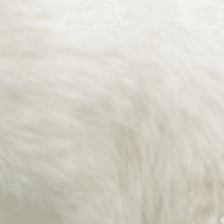
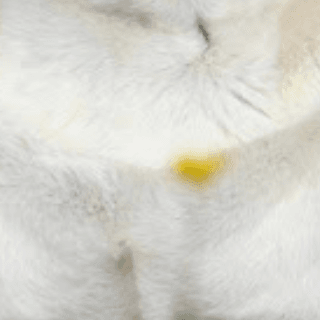

Known Diseases
Eye diseases
Often occur with allergies and intolerances.
Patellar luxation
Patellar luxation is the term used to describe a displacement of the kneecap, which is one of the most common causes of lameness in dogs.
FAQ
-
Between 700 and 2000 Euro costs a Bichon Frise puppy. Depending on the breeding and whether the animals can be bought with papers.
-
Yes, a Bichon Frise is a great family dog and is also suitable for children.
-
A Bichon Frise needs little to average exercise. However, he likes to spend about 1-2 hours a day outdoors.
-
No, a Bichon Frise does not shed heavily. It is even considered a hypoallergenic dog breed.
Other small dogs
Useful Articles
You can find articles that might interest you in the dogbible blog to match your favorite breed.
Visit our magazineto stay up to date on dog trends.
To find out more, view our Privacy Policy
Find here the breed that suits you and find out what character traits it has. Here you can also learn more about the origin, size and weight of your favorite breeds.
Matching your favorite breed, you'll find articles that might interest you on the dogbible dog blog.
Lake Garda with dog - Dog runs, Bathing place for dogs, Dog beach on Lake Garda
Why your dog should sleep in your bed! Tips and reasons
Cancer in dogs - cause, diagnosis, prevention of cancer in dogs






